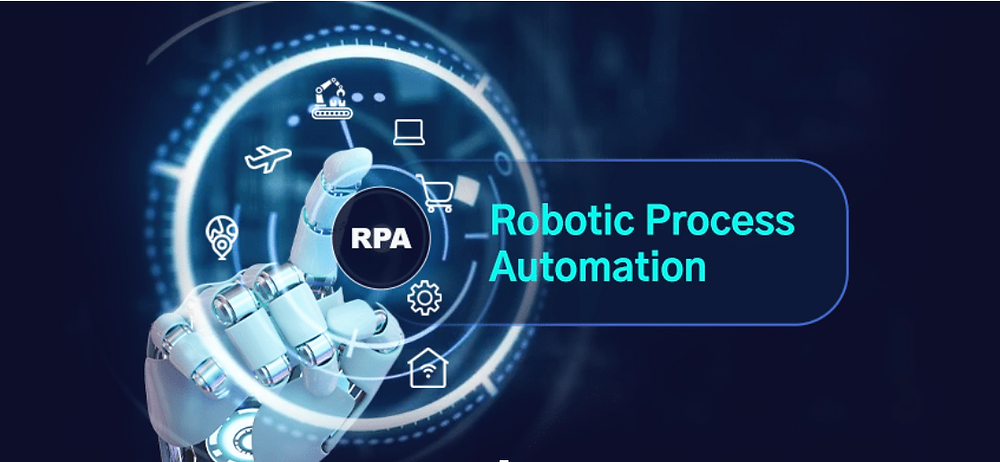Revolutionizing Indian ManufacturingThe Strategic Implementation of Robotic Process Automation

In the rapidly evolving landscape of global industry, Indian manufacturing sectors are poised for a significant transformation through the adoption of Robotic Process Automation (RPA). This advanced technology offers unprecedented opportunities for enhancing efficiency, precision, and competitiveness across a diverse range of manufacturing domains.
Comprehensive Impact Across Indian Manufacturing Sectors
Robotic Process Automation (RPA) potential extends to numerous critical industries within India's manufacturing ecosystem:
Heavy Industries and Energy Sector:
· Oil & Gas, Refineries
· Chemicals & Petrochemicals
· Iron & Steel, Metal Industry
· Power & Energy
· Cement, Glass
These cornerstone industries can leverage RPA to optimize complex processes, enhance safety protocols, and improve resource allocation. For instance, in refineries, RPA can monitor and adjust production parameters in real-time, ensuring optimal output and reducing energy consumption.
Consumer Goods and Materials:
· Plastics, Rubber
· Textiles
· Food Processing
· Paper
RPA in these sectors can streamline supply chain operations, improve quality control measures, and enhance product traceability. For the textile industry, RPA can manage intricate inventory systems and automate order processing, significantly reducing lead times.
High-Technology Manufacturing:
· Automobiles
· Electronics & Electricals
· Machine Tool Manufacturers
· OEMs (Original Equipment Manufacturers)
In these precision-driven industries, RPA can be instrumental in maintaining high-quality standards, managing complex assembly lines, and facilitating seamless integration of various manufacturing stages. For automobile manufacturers, RPA can orchestrate just-in-time production systems, optimizing resource utilization.
Specialized and Innovation-Driven Sectors:
· Pharmaceuticals
· Fertilizers, Dyes
· Renewables
· Engineering Goods
These sectors, characterized by stringent regulatory requirements and continuous innovation, can benefit from RPA's capacity to ensure compliance, manage research data, and accelerate product development cycles. In the pharmaceutical industry, RPA can automate documentation processes for clinical trials and regulatory submissions.
Support and Infrastructure Industries:
· Communication Systems
· Security Systems
· Integrated Projects
RPA can enhance the efficiency of these supporting industries by automating network management tasks, security monitoring, and project coordination activities. This automation can lead to improved service delivery and more robust infrastructure support for manufacturing operations.
Strategic Implementation of
Robotic Process Automation (RPA) in Indian Manufacturing
To maximize the benefits of RPA across these diverse sectors, a strategic approach is essential:
Process Analysis and Optimization:
Conduct comprehensive audits of existing manufacturing processes to identify areas where RPA can deliver maximum impact. This involves mapping workflows, identifying bottlenecks, and prioritizing automation opportunities.
Technology Integration:
Develop a roadmap for integrating RPA with existing manufacturing execution systems (MES), enterprise resource planning (ERP) software, and industrial control systems. This integration ensures seamless data flow and process coordination.
Customized RPA Solutions:
Tailor RPA implementations to address industry-specific challenges. For example, in the chemical industry, RPA can be customized to manage complex formulation processes and ensure precise mixing of ingredients.
Scalability and Flexibility:
Design RPA systems with scalability in mind, allowing for easy expansion as manufacturing operations grow. Flexibility in RPA architecture enables quick adaptation to changing market demands and production requirements.
Data Security and Compliance:
Implement robust security protocols within RPA systems to protect sensitive manufacturing data and intellectual property. Ensure that RPA implementations comply with industry-specific regulatory requirements, particularly in sectors like pharmaceuticals and food processing.
Workforce Development:
Invest in comprehensive training programs to equip the workforce with the skills necessary to operate, maintain, and optimize RPA systems. This includes developing expertise in RPA programming, process optimization, and data analysis.
Continuous Improvement Framework:
Establish mechanisms for ongoing assessment and refinement of RPA implementations. This involves regular performance audits, feedback loops, and iterative improvements to ensure RPA systems evolve with changing manufacturing needs.
Long-term Impact on Indian Manufacturing
The strategic implementation of RPA across Indian manufacturing
sectors promises to yield significant long-term benefits:
· Enhanced Global Competitiveness: By improving efficiency and reducing operational costs, RPA enables Indian manufacturers to compete more effectively in global markets.
· Innovation Acceleration: Automation of routine tasks frees up resources for research and development, fostering innovation across industries.
· Quality Improvement: Consistent and error-free execution of processes leads to higher product quality and reduced waste.
· Sustainability: RPA can optimize resource utilization, contributing to more sustainable manufacturing practices.
· Economic Growth: Increased productivity and efficiency in manufacturing sectors can drive overall economic growth and job creation in allied industries.
Way Ahead for Robotic Process Automation (RPA)
Robotic Process Automation stands as a pivotal technology in the
transformation of Indian manufacturing. Its implementation across diverse
sectors – from heavy industries to specialized manufacturing – offers a pathway
to enhanced efficiency, quality, and global competitiveness. As Indian
manufacturers embrace this technology, they position themselves at the
forefront of the global industrial landscape, ready to meet the challenges and
opportunities of the future.
For industry leaders and decision-makers seeking to explore the transformative potential of RPA in manufacturing, platforms like the #AutomationExpo2024 offer valuable insights and networking opportunities. These events showcase cutting-edge RPA solutions tailored for various manufacturing sectors, providing a comprehensive view of the technology's capabilities and applications.

















